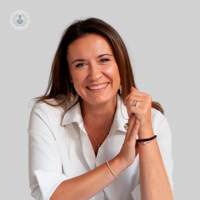Mindfulness without meditation
Autore:Meditation is the best-known – and recommended – way to achieve mindfulness.
However, if you are finding it difficult to practise meditation, leading clinical psychologist and mindfulness expert, Dr Kamila Hortynska, offers her guidance on how to practise mindfulness without meditating.

Can I practise mindfulness without meditating?
First, I want to say that it’s not going to be the full mindfulness practice. Hence, I will always encourage you to find time to practise meditation – even for a few minutes a day.
Mindfulness is another word for self-awareness. This is awareness of where your mind is, how you are feeling, what’s in your environment - just knowing that you are in the here and now.
To start developing mindfulness, you can start using something that I call check-ins.
Check-ins involve you literally pausing for a moment and asking yourself: How am I feeling? How am I feeling in my body? How am I feeling in my mind? How am I feeling emotionally? How is my current situation that I'm in? Just like taking stock of what is happening, what you're feeling, what’s the state of your mind.
Some days, the answer will be specifically about how you feel emotionally. For example, you may feel low, anxious, overwhelmed, bored, or tired.
Other times, the answer will be more about how you feel physically. For example, you may notice that you feel foggy, really sleepy, or really active and invigorated and your mind is buzzing and finding it hard to concentrate.
Others, the answer will be about the state of your mind specifically.
Regardless of which answer comes to the forefront of your attention, you can always ask about the other ones as well.
How to do a check-in
1. How am I feeling?
The first step is to ask yourself: What am I feeling? What is present in my experience? What is alive within me? The answer will come straight away. It will be very quick, very simple.
2. Breathe with it, be with it
The second step is to be with the particular state that you recognise in the moment, without judging it in any way, without trying to change it, simply taking a few breaths with the feeling that you are recognising.
This may be three breaths, five breaths, 10 breaths depending on how much time you have, or it may be just one breath (one conscious in breath and one conscious out breath).
3. What do I need?
The third step, and the most helpful for my clients, is to ask yourself: What do I need? If you notice that you are getting anxious or feeling uncomfortable in a situation or a conversation, ask yourself: What do I need?
Depending on the situation, different answers will come. It may be that you need to have a break from the situation, or you feel tired and need to move your body to wake yourself up a bit, or you haven’t drunk anything for several hours and you simply need to drink a glass of water to pick your brain up. The answer will depend on what you realised in the first step.
If you can’t fulfil that need in that very moment, make a mental note. For example, if you’re tired and you realise that you need to have an early night, make a mental note to not scroll on your phone in the evening or not watch TV. Another example would be to cancel meetings or commitments with friends and instead prioritise your health and wellbeing.
Dr Kamila Hortynska is a registered clinical psychologist, CBT therapist, spiritual life coach, and mindfulness expert with over 20 years’ experience. If you would like to learn how to meditate and get started with mindfulness, don’t hesitate to reach out to Dr Hortynska via her Top Doctors profile today.



